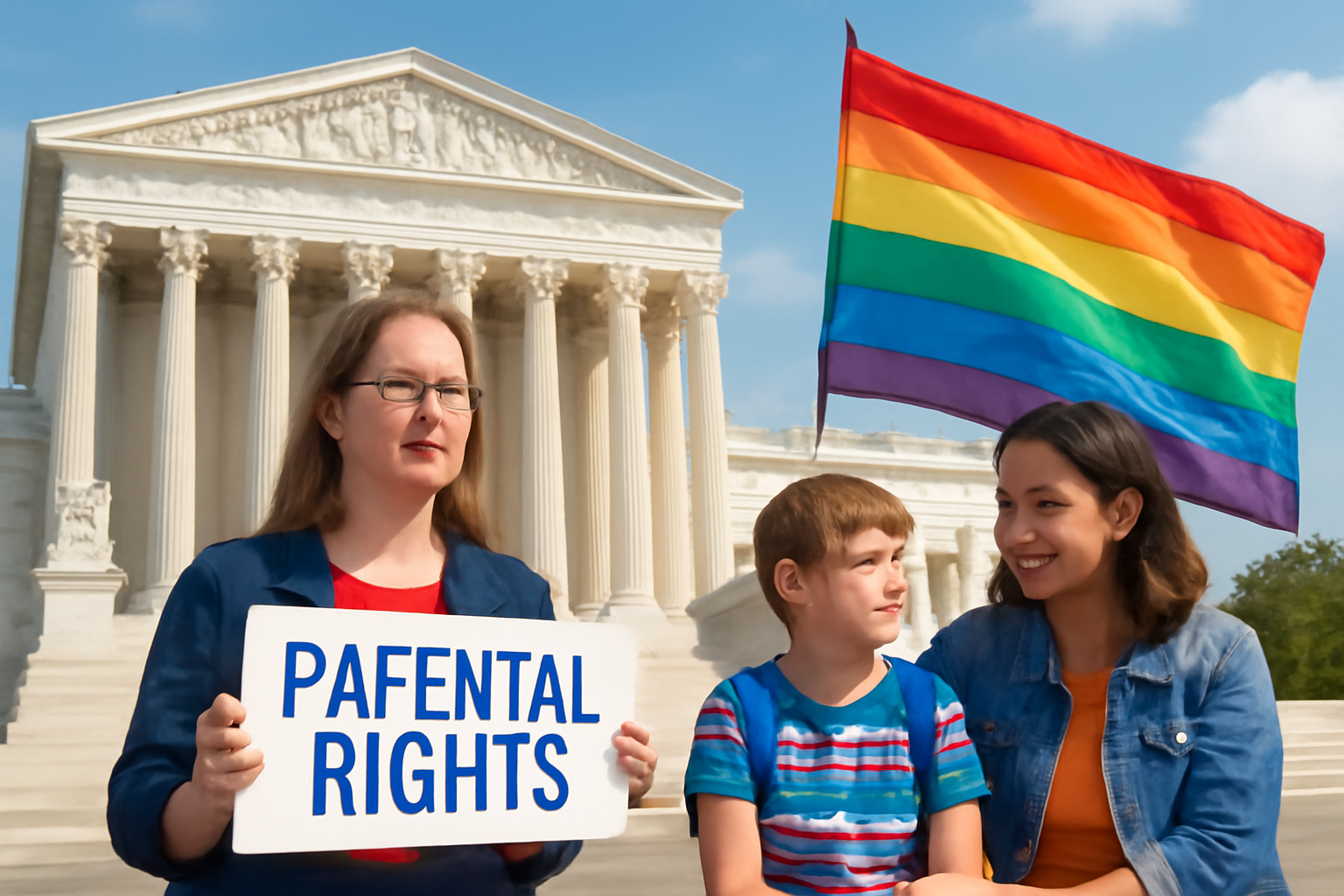
The U.S. Supreme Court has agreed to hear a case involving Montgomery County Public Schools that has significant implications for parental rights and LGBTQ-inclusive education. This decision stems from a lawsuit filed by a group of parents who claim that the school district's policies infringe upon their religious freedoms. The case has garnered national attention due to its potential impact on how schools across the country handle inclusive curriculums.
In May 2023, these parents filed a federal lawsuit against Montgomery County Public Schools, expressing concerns about the school district's policy that prevents them from opting their children out of lessons or materials that include LGBTQ topics. The parents argue that this policy conflicts with their religious beliefs and infringes upon their rights to guide their children's education according to their values.
On August 24, 2023, a federal judge in Maryland ruled in favor of Montgomery County Public Schools, dismissing the parents' claims. The judge emphasized the importance of providing an inclusive educational environment that reflects the diversity of society. However, the parents, dissatisfied with the ruling, appealed to the 4th U.S. Circuit Court of Appeals. The appeals court upheld the lower court's decision, maintaining that the school district's policies were lawful and did not violate constitutional rights.
The parents have now taken their case to the U.S. Supreme Court, arguing that the lower courts failed to adequately address their concerns about religious freedom and parental rights. The Supreme Court's decision to hear the case has reignited a national debate about the balance between educational inclusivity and parental authority.
According to the Supreme Court filing obtained by national media, the parents argue, "Under the 4th Circuit's reasoning, parents cannot be heard until after the damage has been done to their children. But there is no unringing that bell — by then, innocence will be lost and beliefs undermined." This statement captures the crux of the parents' argument: that exposure to LGBTQ-inclusive content is harmful to their children's development and contrary to their religious upbringing.
The case raises important questions about the role of public education in fostering inclusivity and acceptance. Advocates for LGBTQ rights argue that inclusive education is essential for creating a safe and supportive environment for all students, including those who identify as LGBTQ. They contend that exposure to diverse perspectives and experiences helps to reduce discrimination and promotes understanding and empathy among students.
Meanwhile, the parents involved in the lawsuit believe that they should have the right to determine what is appropriate for their children to learn, particularly when it comes to sensitive topics that may conflict with their religious beliefs. They argue that being forced to expose their children to materials that contradict their values infringes upon their rights as parents and could have lasting impacts on their children's beliefs and identities.
As the Supreme Court prepares to hear this case, communities across the country are closely watching the outcome, as it could set a precedent for how schools navigate the complexities of inclusive education and parental rights. The decision could either reaffirm the state's role in providing a comprehensive education that includes diverse perspectives or emphasize the rights of parents to make decisions about their children's exposure to certain content.
This case highlights the ongoing tension between ensuring a well-rounded education for all students and respecting the diverse beliefs held by families. As society continues to evolve, so too do the discussions about how best to balance these often competing interests in a manner that respects both individual rights and the collective good.
The Supreme Court's ruling, expected later this year, could have far-reaching implications for educational policies nationwide. It will likely influence how school districts approach the inclusion of LGBTQ topics in their curriculums and how they accommodate the diverse beliefs of the families they serve.
The outcome of this case will not only affect the parties involved but could also shape the future of education policy in America, setting a new standard for how schools balance inclusivity with respect for parental rights. As such, educators, parents, and policymakers alike are eagerly anticipating the Supreme Court's decision, which will undoubtedly have a significant impact on the landscape of public education.
Related Posts
Ryan Russell: Living Authentically as a Bisexual NFL Player
Ryan Russell: embracing authenticity as a bisexual NFL player September 11, 2018, stands out as a deeply personal day in Ryan Russell's life. Not because he achieved something on a football field, but because he lost his dear friend and college roommate, Joe Gilliam, who succumbed after a brave battle with cancer. Throughout Joe's fight, Ryan was there, supporting him every step, even dedicating [...]
Jacob Elordi Shines in a Queer Love Story "On Swift Horses"
Jacob Elordi's latest film, "On Swift Horses," might leave you guessing at first, but at heart, it's a deeply moving queer love story. It's an adaptation from Shannon Pufahl's novel, brought vividly alive by director Daniel Minahan and writer Bryce Kass, weaving together themes that explore love, identity, and self-discovery on many levels. Love unfolds in 1950s America Step back in time with "O [...]
Creating New Models for LGBTQ+ Parenting: Embracing Community and Visibility
Empowering parenthood: envisioning a truly inclusive future "I'm all in when it comes down helping people realize their dreams about becoming parents," says Marea Goodman. She's not just a midwife; she's an author and founder who built Pregnant Together, an inclusive community with a heart. Goodman passionately believes that everyone, no matter who they are, deserves a shot at parenting. With tw [...]